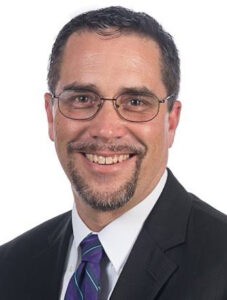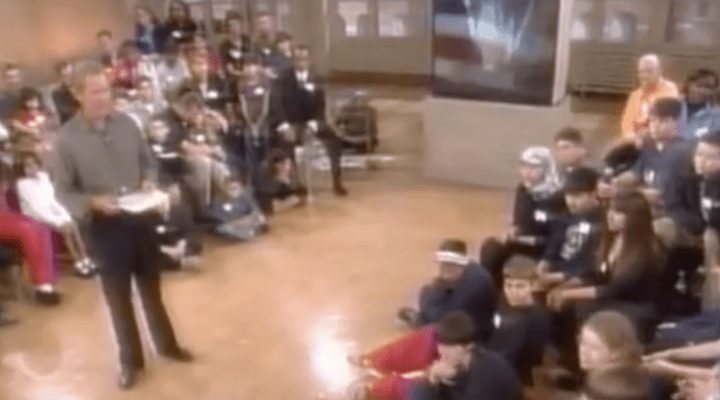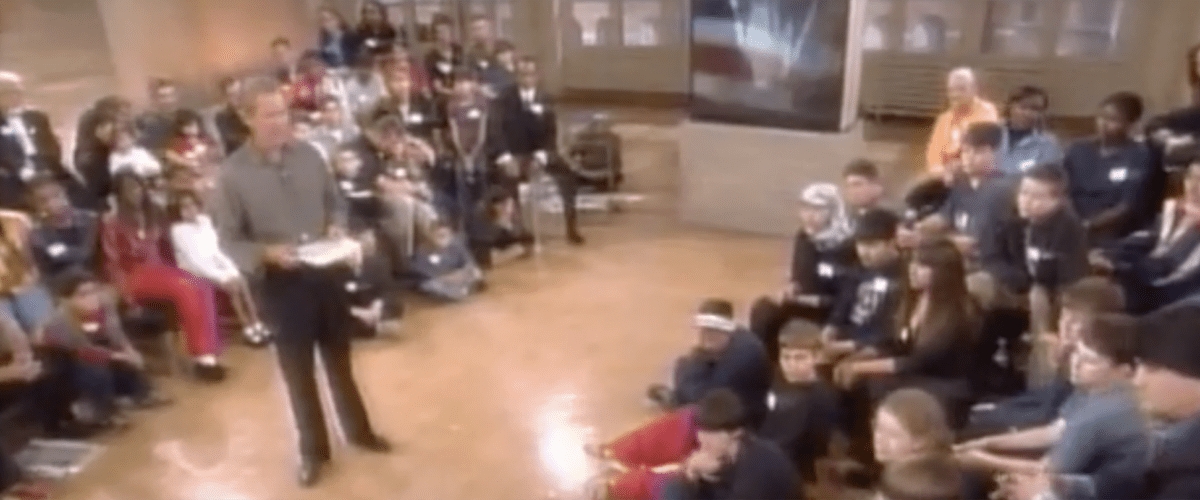I work with a variety of young people in a variety of settings. Today in a class in one of those settings, and on impulse, I told the class I wanted to take the temperature of the group. I said, “I was up until 1 a.m. watching the news. I’m wondering how you are feeling today.”
Words like this were said: Overwhelmed. Anxious. Stressed. Worried.
It suddenly occurred to me that while the war in Afghanistan had raged their whole lives, they didn’t remember it starting. It always had been there. I had been born into the Vietnam War. I remembered still being overwhelmed, anxious, stressed, and … abjectly terrified watching on live TV when cruise missiles started hitting Baghdad in 1990 when I was in seminary.
“It suddenly occurred to me that while the war in Afghanistan had raged their whole lives, they didn’t remember it starting.”
I walked away from the lectern, pulled up a stool, sat down, paused, then said: “I’m a licensed scuba diver where the rule is ‘Plan the dive and dive the plan.’ It was drilled into us to STICK. WITH. THE PLAN. That keeps us safe.
“On the other hand, I had a seminary preaching professor who said this about teaching: ‘Plan your lessons. But if events going on in the world offer a chance for more learning or care than what you planned, ditch your plan. Besides, your congregation or students aren’t going to learn if they are distracted.’
“So, which should I do? Should I dive the plan, or ditch the plan? The rule with scuba diving is an issue with safety. We don’t have an issue with an immediate threat to safety. This is a class. Our plan is to learn. So, maybe this is a time to ditch the plan. I don’t know how long this will take, but let’s take some time to acknowledge where we are in a world where we feel different today than yesterday.”

Brad Bull
“Let me first ask you if you know why I felt glad to hear you say you felt overwhelmed, anxious, stressed and worried. I mean, I’m sorry you feel that way, but I’m actually sort of relieved to hear it. Why?”
A student said, “Because it means we have feelings?”
“Yes. You have feelings. What kind of feelings?”
Someone else: “We care enough about people to be worried.”
Respectfully and somberly I said, “Yes.”
“When I was in college, my generation was accused of being apathetic. Of not caring. I’m glad you all are not robots. I’m glad you care; that you have the human decency to be worried what is happening to others.”
“Do any of you have family in the military?”
I was stunned by the number of hands that went up. I asked, “What branches?”
I heard a barrage of: “Army, Navy, Army Reserve, Air Force.” There may have been Marines and Coast Guard in there too. There were many voices.
“You all are not old enough to remember 9-11, so you are not old enough to remember the outbreak of the wars in Iraq and Afghanistan. But something happened prior to 9-11 that illustrates how 9-11 changed our culture. In 1990, when the First Gulf War broke out, I remember a town hall meeting for children hosted by ABC News anchor Peter Jennings. One of the children asked if they were in danger. I remember Jennings emphatically saying something to the effect of, ‘No, you are not in danger. The war is far away. Look at this map. It is way over here. They cannot get to you over here.’ I remember thinking, Wow. That’s…. I don’t know. Presumptuous?
“Then 9-11 happened, and we realized it can happen here. That said, do any of you feel frightened for your own safety?”
Silence. Then, from one speaker who drew some nods.
“Yeah. I mean. That’s part of what I’m anxious about.”
I said, “Good. ‘It won’t happen to me’ is a dangerous attitude.’”
I sighed.
Thinking about the great relationship expert John Gottman and his encouragement to coach young people in managing emotions, I said, “The question now is, what do we do with these feelings?
“I have a suggestion. We are sitting here in our climate-controlled environment to study (this subject). We are sitting here feeling anxious when there is no apparent imminent threat to us in this moment. Somewhere out there are soldiers who are actively in harm’s way. Somewhere out there, there are people in Ukraine cowering. No, let me correct myself. Somewhere out there are people in Ukraine sheltering in subway stations. I would be willing to bet they would give about anything to be in this room studying with us. So, let me propose that, in honor of those in danger, we seize this freedom we are privileged to have and do the learning they would love to be doing. I think that is the best thing we can do with how we are feeling tonight — to take the anxiety we feel and use it as fuel for learning in honor of those who are in far more danger than we are.
I raised my eyebrows to ask consent.
They somberly nodded.
“OK. Let’s roll.”
Brad Bull is a licensed family therapist in private practice who has spent many years as a youth minister and college professor.
Related articles:
Reflecting on the effects of 9/11 and the disarray of America foreign policy | Opinion by David Gushee
On the anniversary of 9/11: Reclaiming ‘unanticipated courage’ | Opinion by Bill Leonard
‘The situation here is terrible,’ Ukrainian Baptist leader tells European allies


